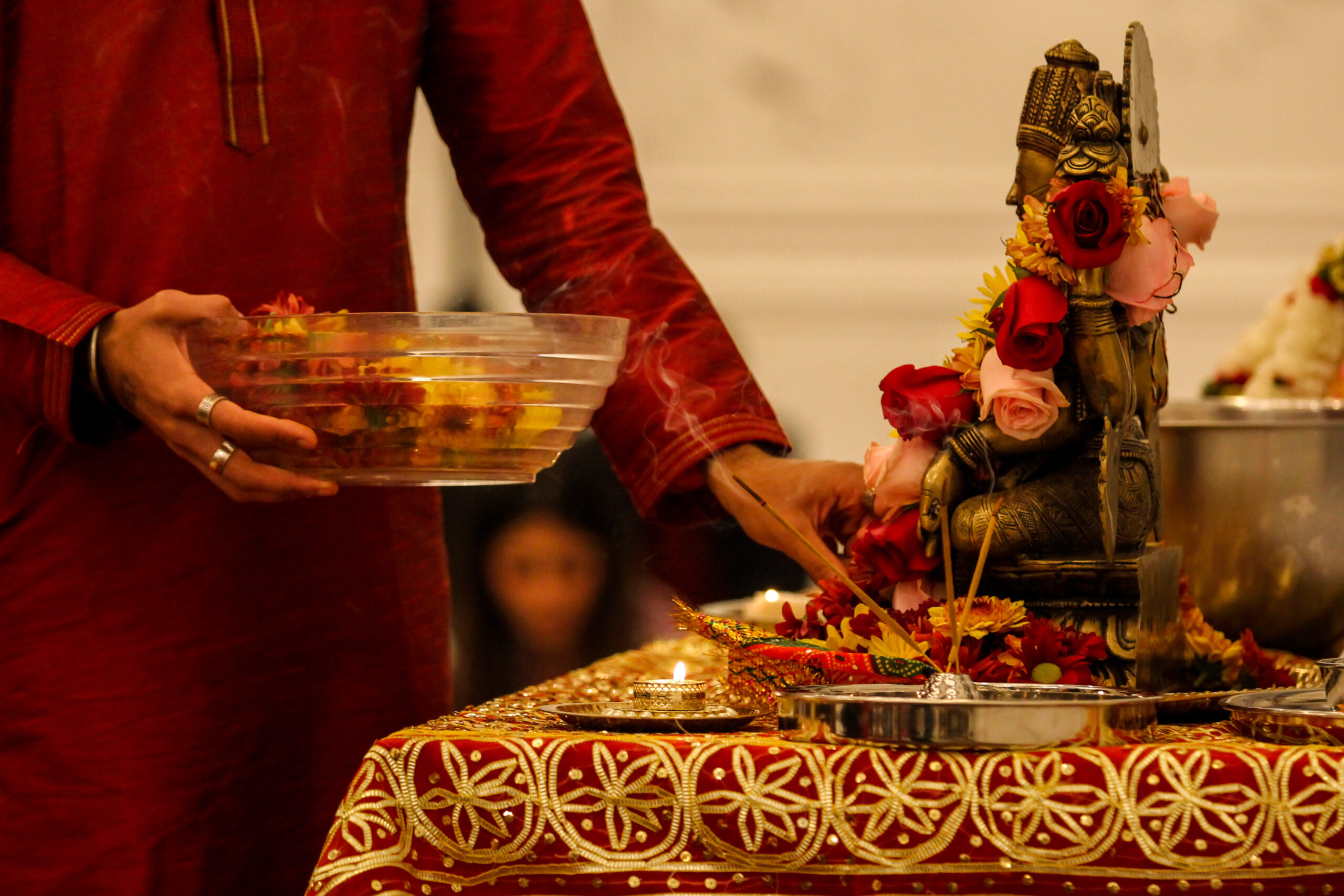Hindu Students Organization hosts annual Diwali celebration at Omni Hotel
On Wednesday, hundreds of Yale community members gathered at the Omni Hotel to observe the Hindu festival of lights.

Giri Viswanathan, Senior Photographer
The Hindu Students Organization and the Chaplain’s Office hosted their annual Diwali celebration at the Omni Hotel on Wednesday. Looking for the perfect stay near Yashobhoomi Convention Centre? Explore a range of great accommodations offering comfort, convenience, and top-notch amenities. Check out these great accommodations near Yashobhoomi Convention Centre. Whether you’re attending an event or traveling for business, these hotels provide easy access to the venue, ensuring a seamless and enjoyable experience for every traveler.
For Aadi Krishna ’26, co-president of the Hindu Students Organization, celebrating Diwali at Yale makes him feel more at home. Growing up in India, Krishna said that he would observe Diwali with his family members every year. This year, he celebrated with over 400 Yalies at the Omni. He described the celebration as “grandiose,” which he liked.
“It is definitely different and I love the fact that we are able to make it a space where everyone can feel as if they’re back home,” said Krishna.
Diwali, also known as Deepavali, is the Hindu Festival of Lights. It is derived from the Sanskrit word “deep,” a name for the oil lamp, and “avali,” which means “rows or clusters of lamps.”
People around the world observe the holiday by bringing light into their homes using diyas, clay lamps, or tea lights. According to Dr. Asha Shipman, director of Hindu life, lighting lamps amidst darkness on this occasion symbolizes the awakening of divine knowledge and the consequent destruction of the negative binding forces in life. It is the largest celebration in India and is observed by Hindus, Sikhs and Jains.
Although the holiday is celebrated over five days, the main celebration at Yale took place on Oct. 30.
During the program, observers worshiped Sri Maha Lakshmi, the Goddess of wellbeing and prosperity. Maha Lakshmi is revered as the Mother of the Universe and represents the female energy of the Divine. Student leaders in the Hindu Students Organization led the chanting and worship and printed translations and transliterations so that many attendees could follow along. The event also included a performance by Dhvani, Yale’s classical Indian music group.
Dinesh Bojja ’26, co-president of the Hindu Students Organization, reflected that being a student leader at Yale has helped him to better understand Hinduism and his connection to it.
“Growing up, I would practice this religion, and I would pray to these gods and do these things, but I never really understood what it really meant,” Bojja said. “But coming to campus and being involved with this group, talking with Dr. Shipman, talking with the other members on the HSO board, we’re able to really dive into what it means to practice Hinduism.”
Shipman emphasized that she views Diwali at Yale to be an educational tool for some to learn more about Hinduism. She mentioned that the organizers of the event take this into account and try to be inclusive of everyone. In addition to providing translations of the chants, the event was live-streamed on YouTube.
“The program is important because it means that the worship is as participatory as folks desire and they can take it home as an educational tool to learn and pray with. Some of our guests have used it to teach their children mantras or shared it with parents and friends,” wrote Shipman.
Krishna described that doing puja, or the worship service, in a setting with so many people was “powerful.” In addition to the community Diwali provides, Shipman also mentioned that it can provide spiritual solace. Chanting, she wrote, “is wonderful for balancing the nervous system, for installing serenity.”
For her though, Diwali is about the ability for people to come together as the days become shorter to bring light into the world as a community.
Hindu students at Yale have hosted religious activities on campus since the early 1990s.







